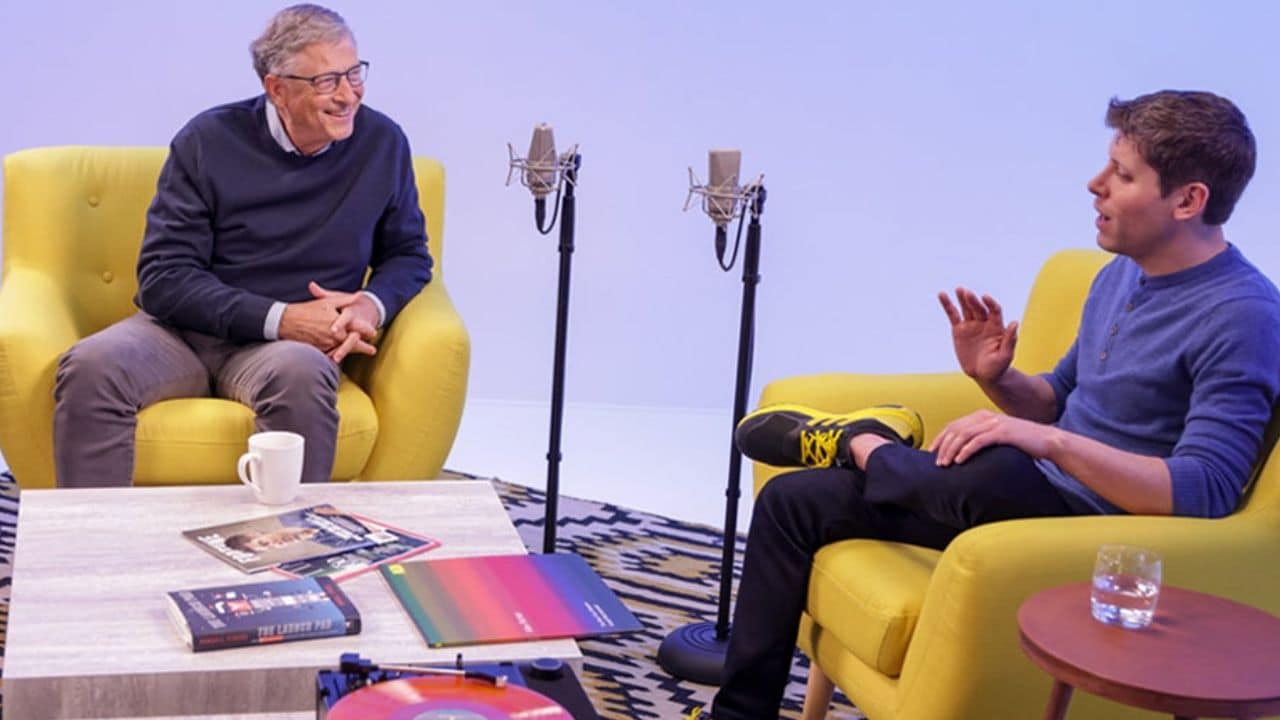Microsoft’s co-founder Bill Gates and OpenAI CEO Sam Altman, had a conversation about the exciting world of AI. They discussed the evolution of AI and the potential of language models used in physical robotics and its implications on society, in a recent episode of Gates’s Unconfuse Me podcast.
During the discussion, Altman explained that AI development initially focused on language models due to the ease of starting with virtual applications. However, he revealed that OpenAI has recently been exploring robotics, expressing excitement about the innovative platforms being built on the physical hardware side.
During the discussion about the impact of AI on the job market, Altman predicted changes in blue-collar work and white-collar work due to advancements in robotic hardware. Gates and Altman also emphasized the value of AI-generated creative output. They also talked about the societal implications of Artificial General Intelligence (AGI). They explored concerns about control, system takeover, and the philosophical dilemma of human purpose in a world where machines excel at tasks traditionally driven by human dexterity. Gates said, “Certainly, the consensus prediction, if we rewind seven or ten years, was that the impact was going to be blue-collar work first, white-collar work second, creativity maybe never, but certainly last, because that was magic and human.”
Gates expressed his concerns about the societal challenges posed by AGI. The prospect of AI suggesting non-traditional pursuits, like engaging in leisure activities while it tackles complex issues, brought forth profound philosophical questions about human purpose and societal organization. Altman countered with optimism, foreseeing a generation growing up in a world without the scarcity of resources, proposing “Our minds are so organized around scarcity; scarcity of teachers and doctors and good ideas that, partly, I do wonder if a generation that grows up without that scarcity will find the philosophical notion of how to organize society and what to do.” He also added, “I’m confident we’re never going to run out of problems, and we’re never going to run out of different ways to find fulfillment and do things for each other and understand how we play our human games for other humans in this way that’s going to remain important.”
The conversation concluded with insights into OpenAI’s competitive landscape and the unique challenges faced by the organization. Gates commended OpenAI’s alignment of exceptional talent with a mission-driven approach, fostering an environment that attracts the best minds in the field. Both Gates and Altman offered valuable advice, emphasizing the importance of assembling diverse teams and taking calculated risks in pursuing ambitious goals.
